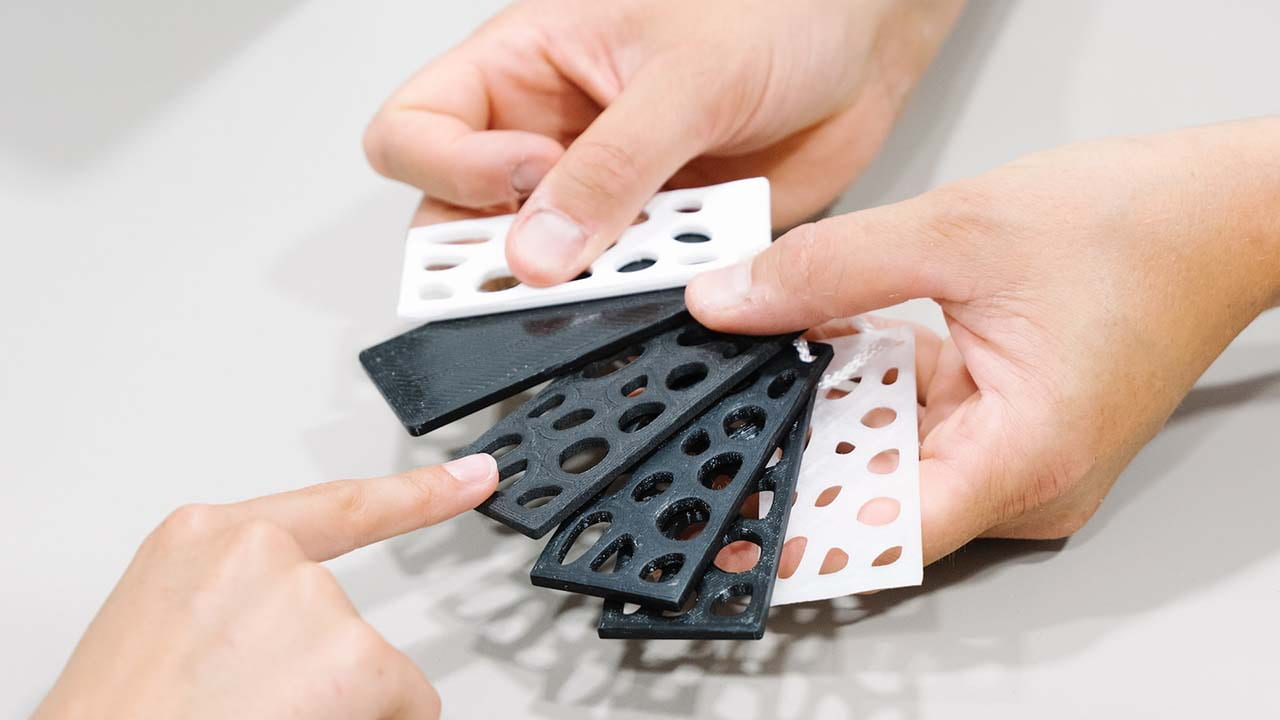Authentic learning with real world contexts
3D printing has revolutionised the world of manufacturing. It has allowed for the creation of complex and intricate structures that were previously impossible to produce. In his course, Mechanical Engineering 707 (MECHENG707), Professor Olaf Diegel and Dr Juan Schutte have students applying 3D printing technology to real-world industrial applications, allowing them freedom to explore the possibilities of the technology while applying the boundaries of physics and technology.

These additive manufacturing technologies continue to evolve and become more accessible. In order to leverage the unique abilities and opportunities of this we need to empower our students with the skills and knowledge in the field of Design for Additive Manufacturing (DfAM). This is where MECHENG707 shines, providing students with hands-on exposure to cutting-edge industrial 3D printers while developing real-world engineering consulting and product development skills.
We provide an in-depth analysis on the many additive manufacturing technologies available, including powder bed fusion, binder jetting, and material extrusion. This empowers our students to design parts that are optimised for each technique. Participants learn to account factors for such as material properties, surface finish, and print orientation.
One of the unique aspects of this course is the emphasis on bespoke manufacturing and the seemingly endless potential for 3D printing. Students have the opportunity to create personalised products, leveraging the unique abilities of the technology to create items that are tailored to individual needs and preferences (while embedding their newly acquired DfAM knowledge of course).
Real world applications
Another key component of MECHENG707 is the focus on developing parts that have real-world industry impacts, such as in the aerospace and automotive industries. Students learn how to design parts that are optimised for weight reduction. Such components can improve fuel efficiency and demonstrate how the technology has major potential in reducing emissions associated with climate change!
Students also learn about the various post-processing techniques used to finish and refine printed parts, including sandblasting, polishing, and painting.
Transferrable skills
Perhaps most importantly, students in this course develop real-world engineering consulting and product development mindsets. They learn about the business side of additive manufacturing, including cost analysis, it’s effect on supply chain, and intellectual property considerations. All of this in conjunction with exploring highly advanced design software which seeks to change the future of manufacturing.
By leveraging the unique abilities of 3D printing, students in this course will be well-prepared to enter the rapidly evolving world of additive manufacturing and make a positive impact on the industry.

Prof. Olaf Diegel is a Professor of Additive Manufacturing at the Creative Design and Additive Manufacturing Lab, Faculty of Engineering, Waipapa Taumata Rau | The University of Auckland. Olaf is internationally renowned for his 3D printed guitars!

Dr Juan Schutte is a Research and Development Engineer at the Faculty of Engineering’s Creative Design and Additive Manufacturing Lab, Faculty of Engineering, Waipapa Taumata Rau | The University of Auckland.
